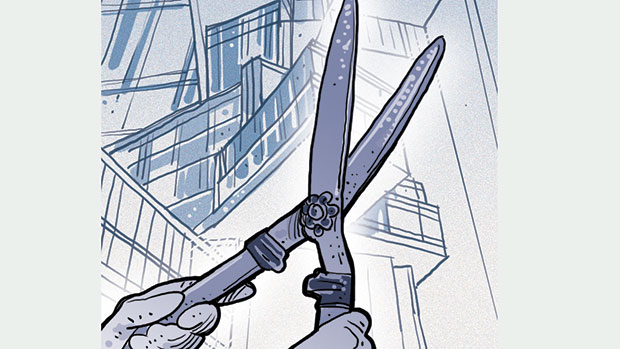
Nowadays, more and more people are moving to the cities. Experts predict the world’s urban population will double by 2050. As our planet becomes more urban, our cities need to get smarter to handle this large-scale urbanisation and meet citizens’ needs and aspirations for an improved quality of life, reduced pollutants, increased efficiency, better services and decreased costs of living. According to UN-Habitat, the Gulf Cooperation Council (GCC) is one of the most urbanised areas in the world, with more than 70 per cent of the population living in urban areas; Kuwait and Qatar are almost 100 per cent urbanised. Urban expansion in the region has been fuelled by both internal migration and the influx of expatriate workers attracted by the region’s economic prosperity and employment opportunities.
So, it is very crucial for GCC states to manage this urban growth in a smart and sustainable manner to prevent unplanned, unsustainable and chaotic development. In fact, megalopolitan growth is a double-edged sword. If well managed, a city can become an attraction for citizens, visitors, tourists, investors etc. Otherwise, it can constitute an urbanisation crisis that causes chorionic problems for municipalities and authorities and can even lead to unrest and demonstrations by residents demanding better services, infrastructure and quality of life. In fact, Green City, Zero Carbon City, Ecological/Clean City and Intelligent/Knowledge City are different terms to denote a “smart city”. A Smart City is a developed urban area that creates sustainable economic development and provides a high quality of life by excelling in multiple key areas: Economy, mobility, environment, people, living conditions and government. Excelling in these key areas can be done through strong human capital, social capital and/or Information and Communication Technology (ICT) infrastructure.
A smart city is a unified urban entity with three critical layers or areas, all planned, developed and managed as its integral parts: First is digital/ICT/hi-tech/multi-play telecom network, ICT spaces/systems/applications/ cloud computing. The second is sustainable/ecological/green/zero-carbon/zero-waste/eco-friendly/renewable/clean energy/green buildings, green lifestyle. And the third is knowledge/learning/innovation/intelligent/science/intellectual/creative/human/social.
Does smart city mean depending on modern technology in various fields? The answer is: Not necessarily. In many cases, the use of cheap, sustainable, traditional local knowledge in a city can be smarter. For instance, traditional techniques of shading, lighting and traditional building designs can be more effective, cheap and sustainable. However, I believe that in modern cities, like most cities of the Arabian Gulf, authorities have to adopt a mix between both traditional and modern technological innovations. For instance, in some areas of the city, especially old ones, traditional smart mobility ways can be more favourable, cheap, sustainable, consumer-friendly and even act as a tourist attraction. In new quarters of the cities, authorities can depend upon new, smart and clean means of transportation.
Across the Arabian Gulf, cities and municipalities are facing a wide range of challenges as businesses and citizens demand better, more efficient and more flexible services. In order for the region’s cities to be smart/sustainable they have to start with the users. They have to understand customers’ needs. So, smart cities are defined by their innovation and their ability to solve problems. Solving problems in a smart way need not involve use of modern technology all the way. This is very true particularly in the Gulf region, where it is very important to understand and respect local cultures and traditions. In fact, traditional knowledge and practices (such as in old urban districts, buildings, transportation, irrigation systems) can often deliver faster, more reliable, cheaper and more environment-friendly services for citizens.
Also, cost-factor and awareness are very important here. You can introduce costly modern technology, but the people may not be aware of how to use it or the cost may be too high for many. So it will never succeed, and may, in some cases, even cause public discontent. Another key point is to understand the nature and ecosystems in and around your urban settlement. For instance, in the Arabian Gulf, sea transport can be more eco-friendly and more fun for many citizens and residents. Another example is, desert safaris or sports that can be more favourable and eco-friendly than establishing golf courses in the middle of the desert, and so forth.
It is worth mentioning that there are many initiatives across the region to establish smart cities and the trend is likely to continue, given the rapid economic growth. In the UAE, both Abu Dhabi and Dubai have strategic plans. Abu Dhabi’s Vision 2030 sets key targets for the emirate’s development over the next 25 years, with a central focus on investment, urban development with green building codes (Estidama and pearl rating system). And Masdar City is aiming to be one of the world’s most sustainable urban developments. In Dubai too, there are many smart cities such as Dubai Health Care City, International City, Sports City, Dubailand, Dubai Waterfront etc.
All GCC countries have tremendous potential to be role models when it comes to smart cities. They have relatively young populations, with governments that are interested in leaving a mark and becoming role models to the world. If well planned, smart cities can ensure that their development is maintained well past the age of oil and natural gas.
Dr Mohamed Abdel Raouf is an Independent Environmental Researcher.










